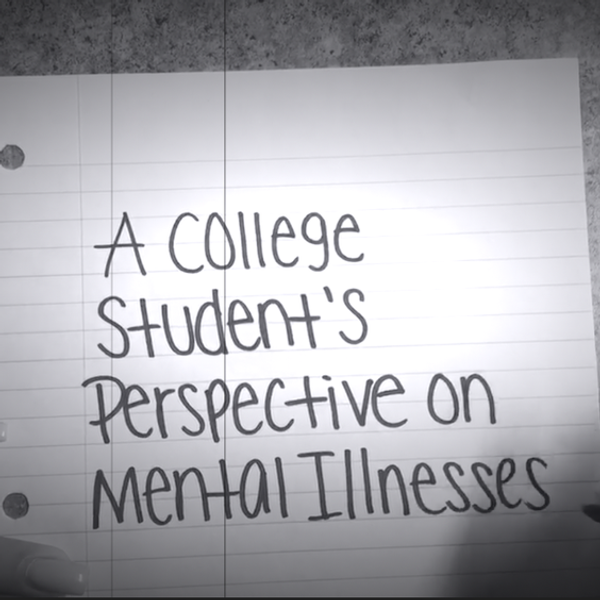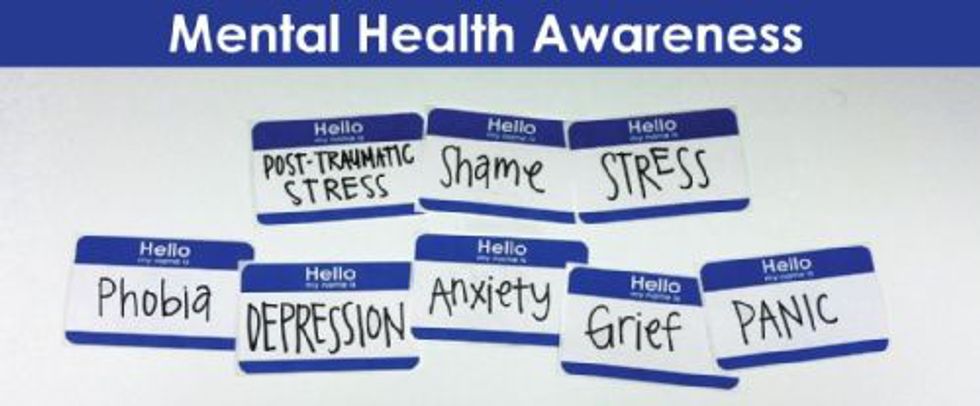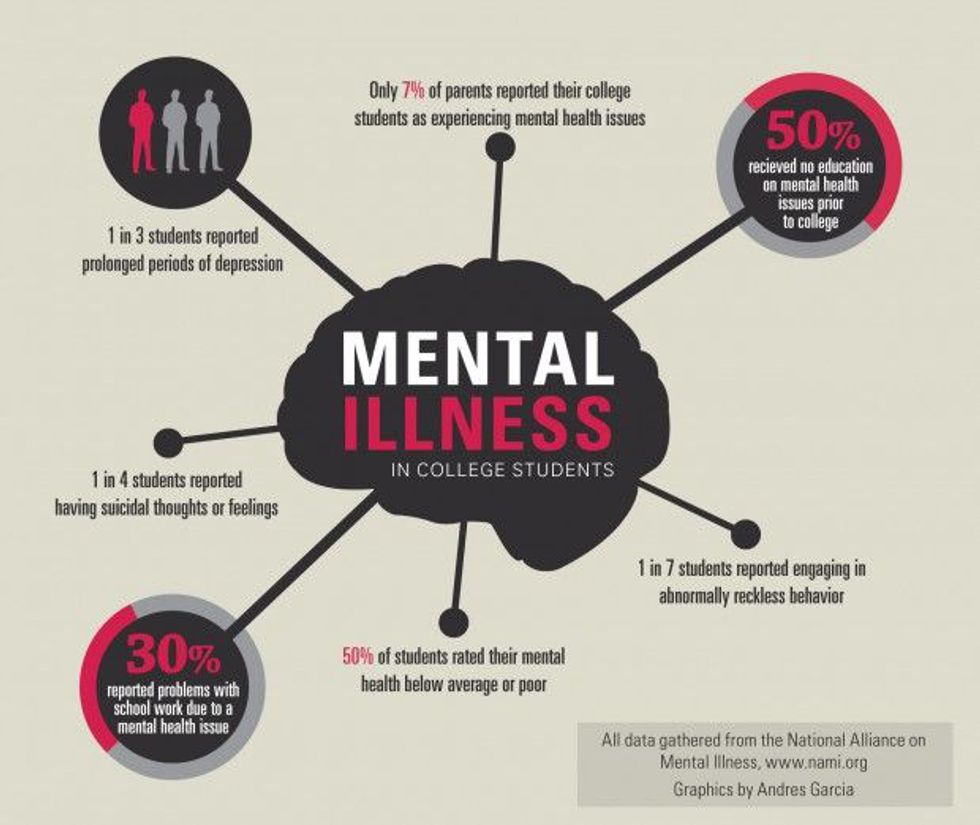While in college, students are constantly having to face problems that they have never had to deal with on their own before. Students are expected to learn how to support themselves without their parents, to be able to keep up grades, and also be more well-rounded by joining clubs. It's not just parents or society that put this type of pressure on students, it is also the students themselves that add the pressure to be what they believe is expected of them. All the pressure can lead a student to have issues with stress, anxiety, and/or depression.
The mental health of college students has increased in past decade and that "between one-quarter and one-third of students meet criteria for an anxiety or depressive illness during their college experience." Stress can lead to more than just anxiety or depression: eating disorders like anorexia and thoughts of suicide are prevalent in the minds of college students today. All of this caused by stress and the pressure to please themselves, their parents, and to be what is expected of them; however, all that stress can cause "mental health issues in the college student population, such as depression, anxiety, and eating disorders, are associated with lower GPAs and a higher probability of dropping out of college."
As a college student myself, I know that it is hard to speak or even believe that you could be suffering from mental illness because it cannot be seen. It is easy for students that are suffering to just say to themselves and/or the people around them that what they are dealing with is just the stress of college and nothing more, but they just might not know how to explain themselves. In the graphic above from the National Alliance on Mental Illness (NAMI) it says that 50 percent of college students received no education on mental health issues prior to college. Meaning that if a college student was dealing with a mental health issue they would not even be aware of how to explain it to themselves let alone the loved ones around them. And because of this "40 percent of students with diagnosable mental health conditions do not seek help." "College students in the 18-to-24-year-old age group show the lowest rate of help-seeking."
Students should be informed of all the different types of mental illnesses there are and what the signs are. At the National Alliance on Mental Illness (NAMI) website you can find the signs and other information about having a mental illness or knowing what you can do to help if you know someone with a mental illness.
Omega Phi Alpha at Oklahoma State University is hosting a Mental Health Seminar April 12, 2016 at 7:30 in the Student Union. There will be booths from other organizations that support all different types of mental illnesses there that people can come up and talk with to learn more about mental health, then there will be an Omega Phi Alpha Alum to speak about how she went through a mental illness during her college years.
























